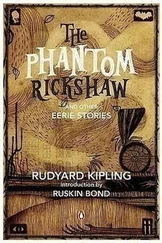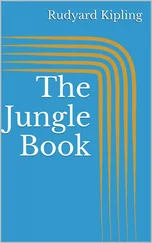Our gloves are stiff with the frozen blood,
Our furs with the drifted snow,
As we come in with the seal—the seal!
In from the edge of the floe.
Au jana! Aua! Oha! Haq!
And the yelping dog–teams go,
And the long whips crack, and the men come back,
Back from the edge of the floe!
We tracked our seal to his secret place,
We heard him scratch below,
We made our mark, and we watched beside,
Out on the edge of the floe.
We raised our lance when he rose to breathe,
We drove it downward—so!
And we played him thus, and we killed him thus
Out on the edge of the floe.
Our gloves are glued with the frozen blood,
Our eyes with the drifting snow;
But we come back to our wives again,
Back from the edge of the floe!
Au jana! Aua! Oha! Haq!
And the loaded dog–teams go,
And the wives can hear their men come back,
Back from the edge of the floe!
For our white and our excellent nights—for the nights of swift running,
Fair ranging, far–seeing, good hunting, sure cunning!
For the smells of the dawning, untainted, ere dew has departed!
For the rush through the mist, and the quarry blind–started!
For the cry of our mates when the sambhur has wheeled and is standing at bay,
For the risk and the riot of night! For the sleep at the lair–mouth by day,
It is met, and we go to the fight. Bay! O bay!
It was after the letting in of the Jungle that the pleasantest part of Mowgli's life began. He had the good conscience that comes from paying debts; all the Jungle was his friend, and just a little afraid of him. The things that he did and saw and heard when he was wandering from one people to another, with or without his four companions, would make many stories, each as long as this one. So you will never be told how he met the Mad Elephant of Mandla, who killed two–and–twenty bullocks drawing eleven carts of coined silver to the Government Treasury, and scattered the shiny rupees in the dust; how he fought Jacala, the Crocodile, all one long night in the Marshes of the North, and broke his skinning–knife on the brute's back–plates; how he found a new and longer knife round the neck of a man who had been killed by a wild boar, and how he tracked that boar and killed him as a fair price for the knife; how he was caught up once in the Great Famine, by the moving of the deer, and nearly crushed to death in the swaying hot herds; how he saved Hathi the Silent from being once more trapped in a pit with a stake at the bottom, and how, next day, he himself fell into a very cunning leopard–trap, and how Hathi broke the thick wooden bars to pieces above him; how he milked the wild buffaloes in the swamp, and how—
But we must tell one tale at a time. Father and Mother Wolf died, and Mowgli rolled a big boulder against the mouth of their cave, and cried the Death Song over them; Baloo grew very old and stiff, and even Bagheera, whose nerves were steel, and whose muscles were iron, was a shade slower on the kill than he had been. Akela turned from gray to milky white with pure age; his ribs stuck out, and he walked as though he had been made of wood, and Mowgli killed for him. But the young wolves, the children of the disbanded Seeonee Pack, throve and increased, and when there were about forty of them, masterless, full–voiced, clean–footed five–year–olds, Akela told them that they ought to gather themselves together and follow the Law, and run under one head, as befitted the Free People.
This was not a question in which Mowgli concerned himself, for, as he said, he had eaten sour fruit, and he knew the tree it hung from; but when Phao, son of Phaona (his father was the Gray Tracker in the days of Akela's headship), fought his way to the leadership of the Pack, according to Jungle Law, and the old calls and songs began to ring under the stars once more, Mowgli came to the Council Rock for memory's sake. When he chose to speak the Pack waited till he had finished, and he sat at Akela's side on the rock above Phao. Those were days of good hunting and good sleeping. No stranger cared to break into the jungles that belonged to Mowgli's people, as they called the Pack, and the young wolves grew fat and strong, and there were many cubs to bring to the Looking–over. Mowgli always attended a Looking–over, remembering the night when a black panther bought a naked brown baby into the Pack, and the long call, "Look, look well, O Wolves," made his heart flutter. Otherwise, he would be far away in the Jungle with his four brothers, tasting, touching, seeing, and feeling new things.
One twilight when he was trotting leisurely across the ranges to give Akela the half of a buck that he had killed, while the Four jogged behind him, sparring a little, and tumbling one another over for joy of being alive, he heard a cry that had never been heard since the bad days of Shere Khan. It was what they call in the Jungle the pheeal , a hideous kind of shriek that the jackal gives when he is hunting behind a tiger, or when there is a big killing afoot. If you can imagine a mixture of hate, triumph, fear, and despair, with a kind of leer running through it, you will get some notion of the pheeal that rose and sank and wavered and quavered far away across the Waingunga. The Four stopped at once, bristling and growling. Mowgli's hand went to his knife, and he checked, the blood in his face, his eyebrows knotted.
"There is no Striped One dare kill here," he said.
"That is not the cry of the Forerunner," answered Gray Brother. "It is some great killing. Listen!"
It broke out again, half sobbing and half chuckling, just as though the jackal had soft human lips. Then Mowgli drew deep breath, and ran to the Council Rock, overtaking on his way hurrying wolves of the Pack. Phao and Akela were on the Rock together, and below them, every nerve strained, sat the others. The mothers and the cubs were cantering off to their lairs; for when the pheeal cries it is no time for weak things to be abroad.
They could hear nothing except the Waingunga rushing and gurgling in the dark, and the light evening winds among the tree–tops, till suddenly across the river a wolf called. It was no wolf of the Pack, for they were all at the Rock. The note changed to a long, despairing bay; and "Dhole!" it said, "Dhole! dhole! dhole!" They heard tired feet on the rocks, and a gaunt wolf, streaked with red on his flanks, his right fore–paw useless, and his jaws white with foam, flung himself into the circle and lay gasping at Mowgli's feet.
"Good hunting! Under whose Headship?" said Phao gravely.
"Good hunting! Won–tolla am I," was the answer. He meant that he was a solitary wolf, fending for himself, his mate, and his cubs in some lonely lair, as do many wolves in the south. Won–tolla means an Outlier—one who lies out from any Pack. Then he panted, and they could see his heart–beats shake him backward and forward.
"What moves?" said Phao, for that is the question all the Jungle asks after the pheeal cries.
"The dhole, the dhole of the Dekkan—Red Dog, the Killer! They came north from the south saying the Dekkan was empty and killing out by the way. When this moon was new there were four to me—my mate and three cubs. She would teach them to kill on the grass plains, hiding to drive the buck, as we do who are of the open. At midnight I heard them together, full tongue on the trail. At the dawn–wind I found them stiff in the grass—four, Free People, four when this moon was new. Then sought I my Blood–Right and found the dhole."
Читать дальше












